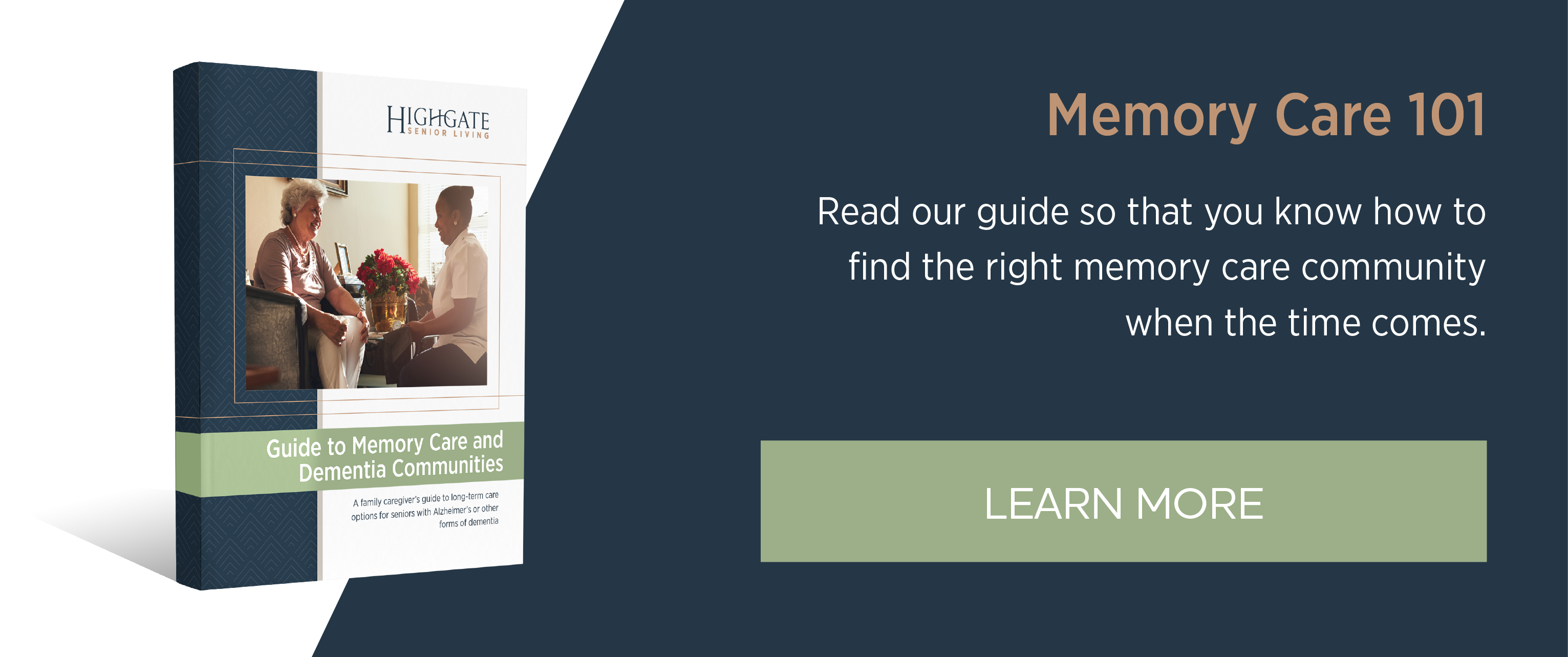
Caring for a loved one with dementia isn’t always easy. People with dementia often require higher levels of care and this can take a toll on you as their caregiver, leading to caregiver stress or burnout. You want your loved one to receive the quality care they deserve, but you’re getting burnt out. It might be time for your parent to start a new journey at a memory care community with professional caregivers who are trained specifically in helping adults with dementia. This doesn’t mean you have to completely step away from being their caregiver, but rather it gives you a chance to be their daughter or son again, visiting with each other rather than helping them all the time with daily living tasks.
When choosing the right memory care community, there are several factors to consider – from the staff, services, activities, location and costs. The most important factor is finding a community that best fits their needs. A community where they feel at home and are cared for in the same way you cared for them. To start, you’ll need to plan on visiting several communities that fit their needs. Here are some things to keep in mind when weighing the costs if memory care is right for you and your loved one.
Professional Caregivers
Staff members at quality memory care communities are specifically-trained to understand and care for those with dementia. Whether it’s nighttime wandering, confusion, repetitive questions, incontinence or just wanting “to go home,” the staff at memory care and dementia communities understand how to handle these situations. You can have the peace of mind knowing they’re taken care of 24/7 in a safe and secure environment. This also gives you the chance to step out of the main caregiver role and back into the role of their appreciative and loving adult child.
Environment
Since people with dementia may easily become stressed and confused, they should live in a relaxing environment. Memory care units often have hallways that are color-coded to assist with navigation and reduce anxiety with the residents. Many communities also have areas that reflect a home where residents can do everyday activities. Having a controlled environment can help your loved one feel calmer and more at ease in their everyday life.
Activities
Staying socially active and involved in meaningful activities is important for those with dementia. Memory care communities offer stimulating activities to help residents stir memories, foster emotional connections with others and lessen their anxiety. Being involved with activities gives them the opportunity to work on their social skills while in an environment to stay focused.
Nutritious Meals
By eating nutritious meals made up of a variety of fruits, vegetables and whole grains, people with dementia can boost their health and lessen behavioral symptoms. Memory care communities offer prepared meals in a dining room setting that gives residents the opportunity to socialize with others. In the later stages of dementia, their taste and smell can make eating more difficult. As a caregiver, it can be difficult to get them to eat a proper meal. Living in a memory community can give you the peace of mind, knowing they’re getting the proper nutrition they need.
Researching all of the different costs associated with memory care communities can feel overwhelming. From the services offered, pricing structures to the extra monthly fees. But knowing your loved one is being cared for in a safe and secure environment? Priceless. . If you’re still unsure if memory care is a good option for your loved one, ask yourself these questions:
- Is your loved one with dementia unsafe in their current home?
- Is their health or your health as a caregiver at risk?
- Are their care needs beyond your physical ability?
- Are you becoming stressed, irritable and impatient as their caregiver?
- Would the structure and social interaction at a memory care community benefit them?
If your answer is “yes” to any of these questions, it’s time to start visiting memory care communities. Download our eBook “Guide to Memory Care Communities” to help guide you through this process.






